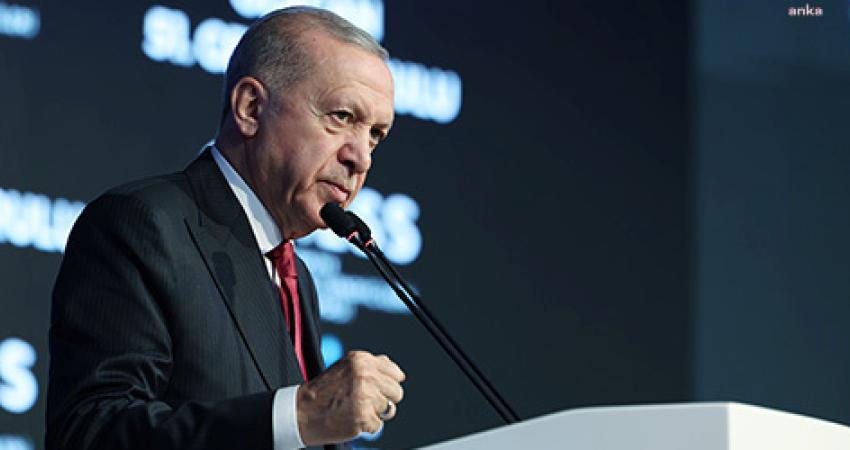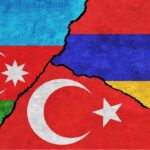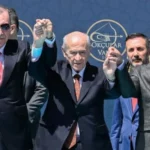October 18, 2024 – Ankara, Turkey
As Turkish President Recep Tayyip Erdoğan continues to call for national unity amid regional tensions, his top aides have firmly dismissed any prospects of reviving the Kurdish peace process, signaling a complex political landscape as the government balances reconciliation efforts with hardline policies.
During a speech at the Turkish Employers’ Association of Metal Industries event in Istanbul on October 18, Erdoğan urged political and social groups to come together for the good of the country. “We must expand the dialogue within our society at this time of heightened regional tensions. When we stand united for Turkey, we can overcome any adversity,” Erdoğan stated. He called on political parties, trade unions, and non-governmental organizations, regardless of their differences, to support what he described as a “brotherhood mobilization” to foster national unity.
Erdoğan’s calls for unity come just weeks after Nationalist Movement Party (MHP) leader Devlet Bahçeli, a key political ally, extended a symbolic handshake to deputies from the pro-Kurdish Peoples’ Equality and Democracy (DEM) Party during the opening session of Parliament on October 1. The gesture was later described by Bahçeli as a “message of national unity and brotherhood,” sparking speculation of a potential political shift toward reconciliation with the DEM Party.
However, Erdoğan’s close advisor, Mehmet Uçum, categorically rejected the possibility of any new Kurdish peace process. In a social media statement on October 18, Uçum made it clear that the government has no intention of reviving peace talks similar to those held between 2013 and 2015, which ultimately collapsed and led to renewed violence. “There cannot be a peace process in Turkey either similar to the previous one or with a new version. Those processes are a thing of the past, a thing of history,” Uçum stated.
Uçum emphasized that the state has adopted new “strong and effective political and military strategies” instead of revisiting failed approaches. He explained that the government’s current engagement with the DEM Party is aimed at offering the party an opportunity to distance itself from its alleged links to terrorism, particularly its perceived association with the outlawed Kurdistan Workers’ Party (PKK). Uçum also warned that if the DEM Party fails to take this opportunity, legal action would be taken to eliminate what he called the “terrorist tutelage” in Parliament.
Critics have suggested that these reconciliation efforts with the DEM Party could be politically motivated, particularly with regard to paving the way for Erdoğan’s potential re-election through constitutional changes. However, Uçum dismissed such claims, saying these efforts “have nothing to do with paving the way for President Erdoğan’s candidacy through a new constitution.”
At the same time, Deputy Chair of the ruling Justice and Development Party (AKP), Efkan Ala, reinforced that there are no plans to negotiate with jailed PKK leader Abdullah Öcalan. He stated that the challenges facing Turkey today are different from those a decade ago, and emphasized that the government would not be repeating the failed policies of the past.
The issue of Kurdish rights and autonomy has long been a contentious one in Turkey. Erdoğan’s government initiated a peace process in 2013 to resolve the decades-long conflict with the PKK, but the talks broke down in 2015, leading to a resurgence of violence in Turkey’s predominantly Kurdish southeast. The failure of the peace process led to widespread destruction, civilian casualties, and a re-escalation of the conflict.
As Erdoğan continues to call for national unity, it remains unclear how the government’s hardline stance on the Kurdish issue will affect efforts to reconcile with the DEM Party. Bahçeli’s unexpected gesture of goodwill, combined with Erdoğan’s emphasis on national cohesion, suggests a possible softening in rhetoric. However, the firm rejection of any new peace process by key figures like Uçum reflects the government’s determination to maintain a tough stance on terrorism and security.
Erdoğan’s balancing act between calls for unity and the denial of a renewed Kurdish peace process will be critical in shaping Turkey’s political future, particularly as the country prepares for upcoming elections. The tension between these competing dynamics highlights the complexities of Turkey’s internal politics, especially in a time of regional instability and mounting international pressures.
By: NAT Editorial Team



